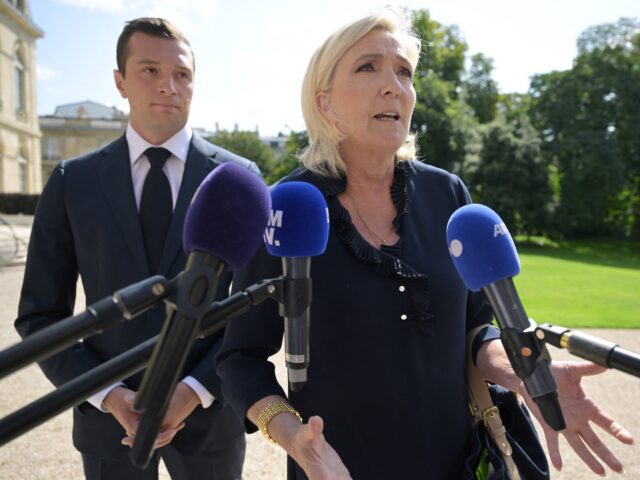Populist leader Marine Le Pen has demanded a national audit of France’s finances to determine how Paris plunged the nation into a budgetary crisis which threatens to take down the new government before it even gets off the ground.
In the wake of massive spending hikes amid the coronavirus lockdowns and the European energy crisis, France’s debt has climbed to over 110 per cent of the country’s Gross Domestic Product (GDP), or over €3 trillion. The debt to GDP ratio now stands as the third worst in Europe, only trailing the terminally in-debt nations Greece and Italy.
Meanwhile, the budget deficit has risen to €154 billion, or around 5.5 per cent of national economic output. This has put Paris at odds with Brussels for contravening the bloc’s 3 per cent limit, potentially putting France on course to face EU financial penalties, which could include cuts to further coronavirus recovery funds or quality of life subsidies distributed among member states.
Commenting on the sorry state of the treasury, National Rally leader Marine Le Pen said this week: “When we demanded an audit of state finances during the legislative elections, aware that France’s budgetary situation was worrying, we were told that everything was under control.
“Today, everyone is pretending to discover a catastrophic situation. A major commission to audit the nation’s accounts must now be set up.”
The budget crisis represents a major challenge for the incoming government of former Brexit villain Michel Barnier, a centre-right former Eurocrat who was installed as prime minister by President Emmanuel Macron earlier this month. Barnier will have to submit a budget to the National Assembly next month, the passage of which is by no means assured given the deeply divided French parliament.
After meeting with the head of state at the Élysée Palace on Wednesday, Barnier said that the fiscal state of the nation was “very serious” and he is reported to be considering tax hikes to address the mounting debt and deficit, Le Monde reports.
However, the new PM’s desire to increase taxes threatens to disrupt his ability to form a government, which is being finalised now and he hopes to have in place within days. To do so, Barnier will need the full backing of Macron’s neo-liberal centrist bloc, which is united around a pro-corporate low-tax philosophy.
The head of Macron’s faction in the National Assembly, former Prime Minister Gabriel Attal, openly came out against the idea, saying that raising taxes “would be terrible for the French” and that the country could risk losing its “economic attractiveness” gained by Macron’s tax cuts.
Going even further, top Macron ally and current Interior Minister Gérald Darmanin said that it was “out of the question” for him to join the incoming government, or even support it in general, if it were to raise taxes.
The push to increase taxes has also drawn pushback from the populist National Rally, with party president Jordan Bardella arguing that Barnier’s government should seek to be more creative than its predecessors, and look to cut government spending instead.
“Before thinking about increasing the slightest tax, there are a thousand ways to reduce spending,” Bardella said, noting that there are “a thousand ways to increase revenue. Without imagination and without courage, Michel Barnier risks quickly finding himself without a government.”
Indeed, an anonymous source within Barnier’s Les Republicains, speaking to broadcaster BFMTV, said of the tenuous political situation: “I’m a little worried… It could blow up… The first to lose is Macron… We would go from a fragile solution to no solution at all.”

COMMENTS
Please let us know if you're having issues with commenting.